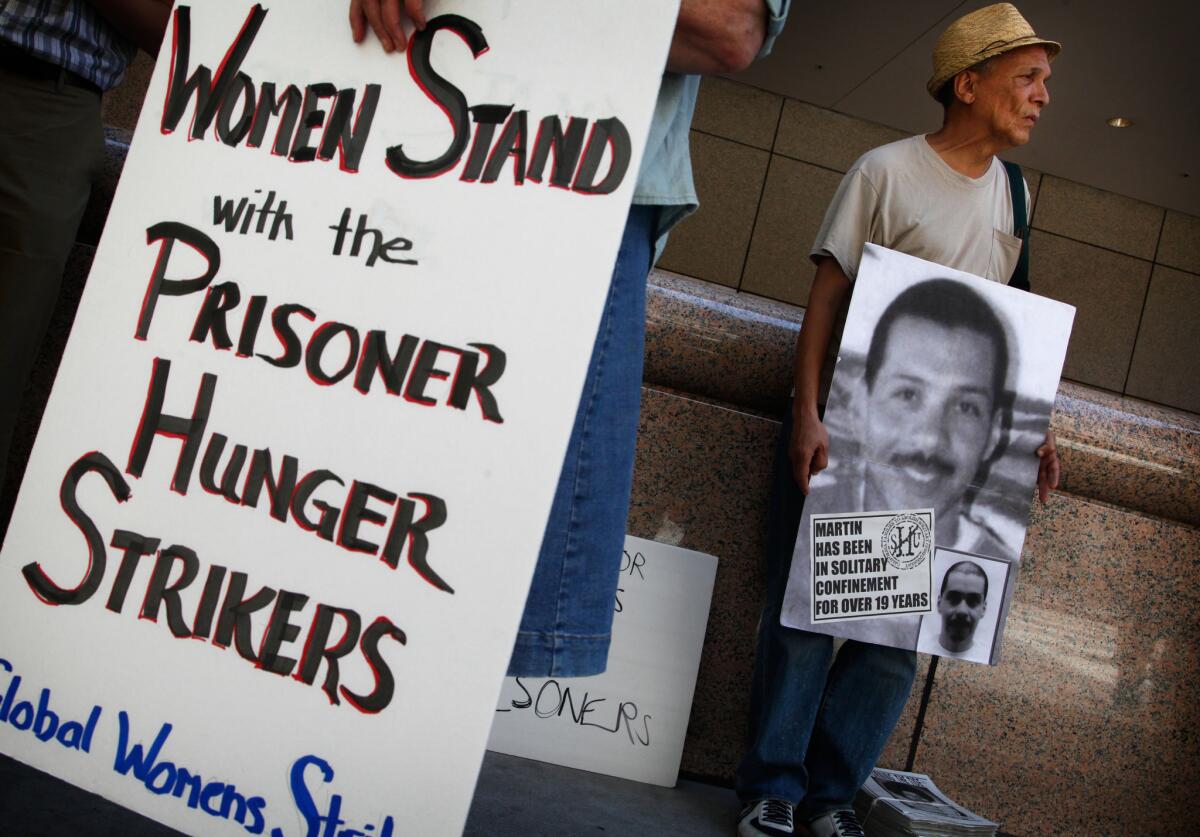California prison protests enter third day

- Share via
This post has been updated. See below for details.
Meal strikes and work stoppages continued for a third day Wednesday in most of California’s crowded prisons.
State corrections officials said the number of inmates refusing meals dipped to just under 29,000, while some inmates failed to go to their prison jobs or classes.
Not all inmates who are refusing meals are fasting, state officials said. “Many of those inmates are also eating canteen,” said corrections spokesman Jeffrey Callison, referring to the instant soups and snack items inmates can buy at prison canteens. Callison said canteen sales did not increase before the protests began, “but the actions were planned for many months.”
Another 5,600 Muslim inmates have asked for Halal meals to observe Ramadan, which in some cases they are allowed to take back to their cells to eat after sunset. Because those inmates are refusing two out of three meals, they may be included in the daily protest count, he said.
In some prisons, inmates said, meal trays were being delivered directly to cells, making it easier for corrections officers to determine who was eating and who was refusing.
The protests began in two-thirds of California’s prisons on Monday, a date agreed to by protest leaders months ago. However, two dozen inmates at High Desert State Prison started their own protest July 1, and by Tuesday 10 continued to refuse meals and were being watched by medical staff.
[Updated, 4 p.m. July 10: The medical receiver’s office confirmed those 10 inmates resumed eating Wednesday, ending their medical observation status. Corrections officials said they did not grant any demands of those strikers, who were protesting isolation conditions within the Susanville prison’s administrative segregation unit.]
The mass protest — which the state won’t recognize as a hunger strike until inmates miss their ninth consecutive meal — centers on the state’s policies for using solitary confinement.
Currently, inmates can be held in isolation indefinitely; some have been there decades. The protesting inmates seek a five-year limit to such treatment. They also ask for increased education and rehabilitation programs for those kept in isolation. And they ask that any agreement to end the protest be turned into a consent decree overseen by a federal judge.
Solitary confinement also is the subject of a pending class-action lawsuit at Pelican Bay State Prison, where organizers of the hunger strikes and work stoppages are incarcerated.
But inmates at other prisons have added their own lists of demands, such as changing the state sentencing law and demanding better food, clothing and cleaning supplies.
ALSO:
California prisons change inmate privileges
Prison protest continues with 29,000 refusing meals
Medical staff keep tabs on some inmates who refuse meals
Follow updates on Twitter: @paigestjohn
More to Read
Get the L.A. Times Politics newsletter
Deeply reported insights into legislation, politics and policy from Sacramento, Washington and beyond. In your inbox twice per week.
You may occasionally receive promotional content from the Los Angeles Times.











